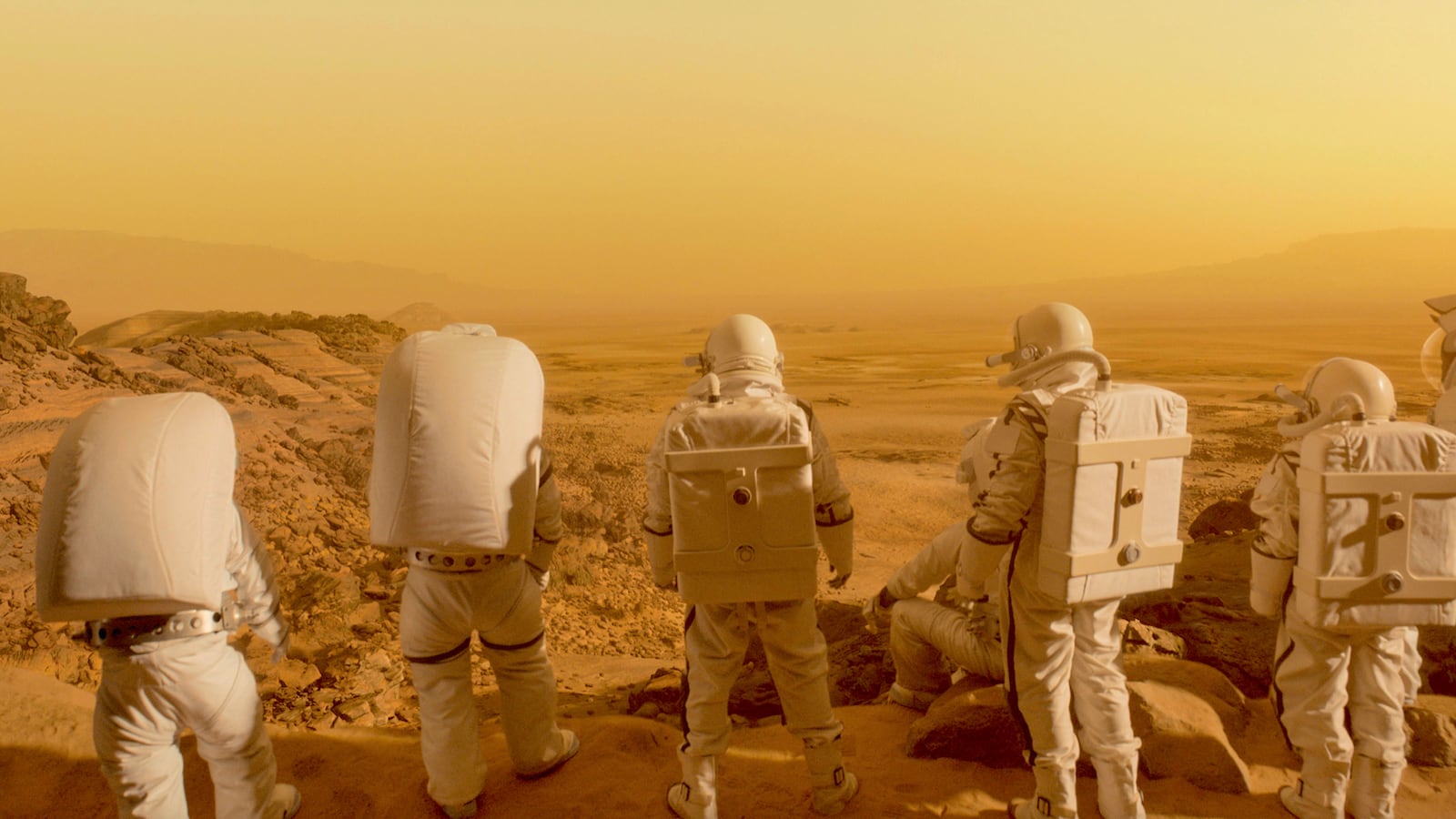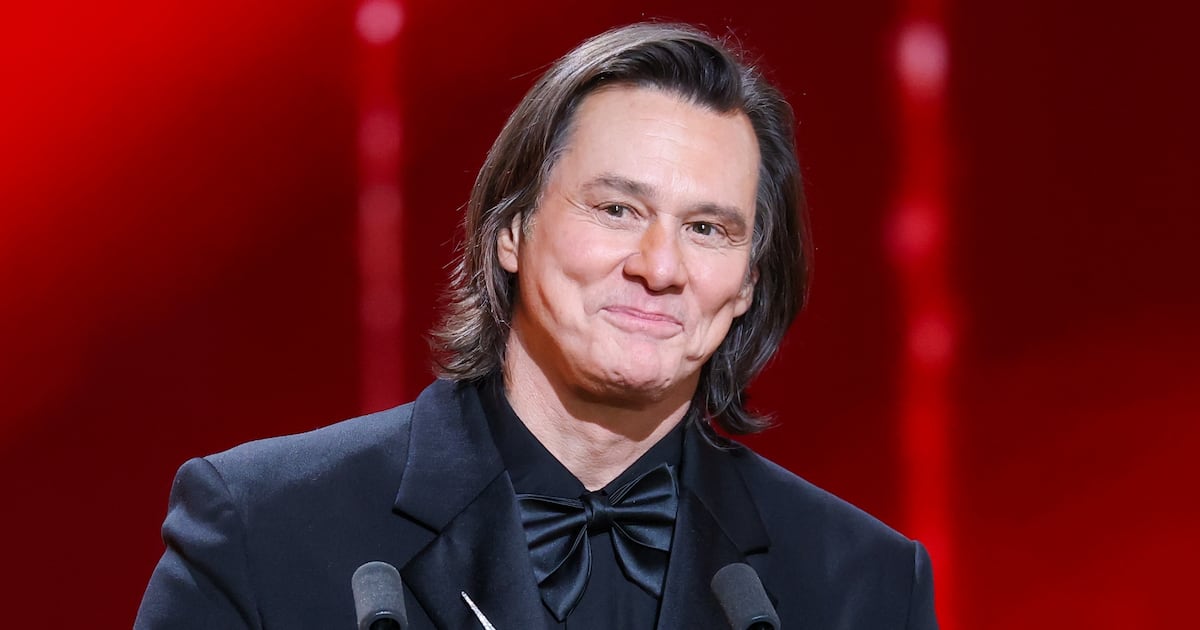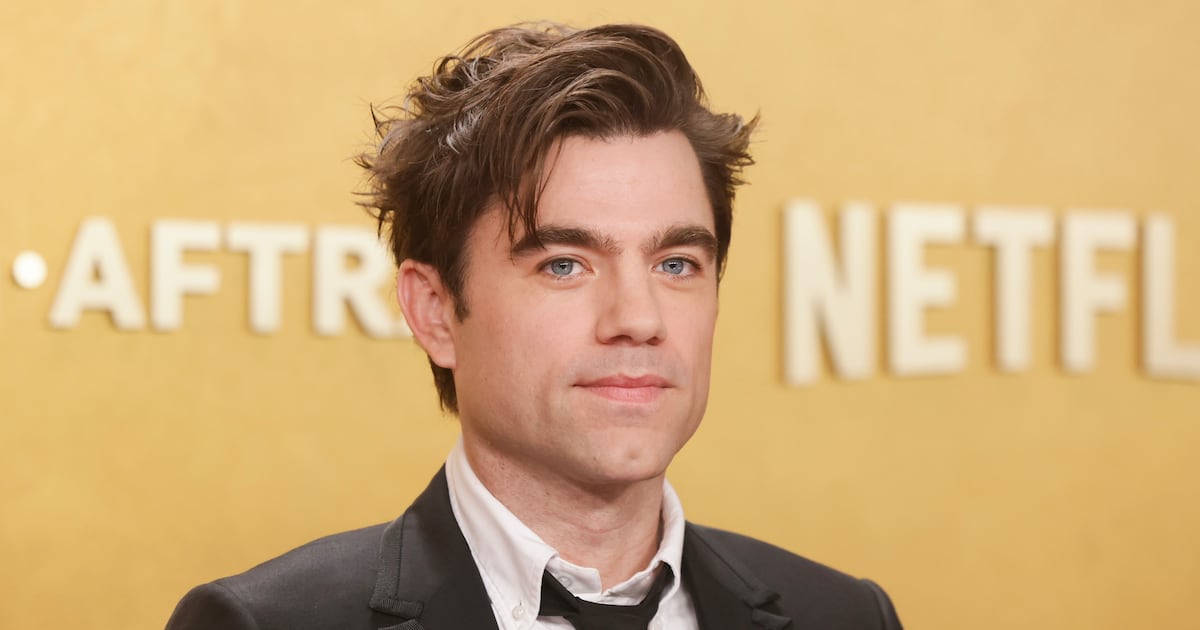Man’s inherent need to explore, to push past boundaries and to be first are all once again front and center in the third season of For All Mankind (June 10), Apple TV+’s superlative series about an alternate history in which the Russians beat the Americans to the moon, thereby instigating decades of space-race competition that thrusts humanity ever further into the cosmos. It’s Mars that’s the goal of both capitalists and communists alike in Ronald D. Moore, Matt Wolpert and Ben Nedivi’s newest 10-episode run, with the Red Planet a prize sought not only by NASA and its Soviet counterparts but also by Helios founder Dev Ayesa (Edi Gathegi), an Elon Musk-style billionaire determined to beat his super-power rivals to the finish line. Reality and fantasy thus continue to collide in thrilling fashion in this revisionist drama, arguably the finest on television, whose out-of-this-world speculative fiction proves as intriguing and nuanced as its diverse characters are inspiring.
It's the early 1990s, and the U.S. and Soviet Union remain locked in a heated intergalactic contest—this time for Mars, the next stop in mankind’s voyage into the far reaches of the galaxy. A fantastic opening montage establishes the global scene: Heroic former astronaut Ellen Wilson (Jodi Balfour) is now running for president on the Republican ticket against Bill Clinton; Nirvana is dominating the airwaves; and the country has firmly enshrined the sacrifice of Gordo (Michael Dorman) and Tracy Stevens (Sarah Jones)—who saved the moon colony from nuclear meltdown at the tragic conclusion of Season 2—as national heroes, replete with an Oscar-winning movie (Love in the Stars) about their fate. Blind NASA legend Molly Cobb (Sonya Walger) is still in charge of selecting the program’s astronauts for missions. Yet when it comes to Mars, that role puts her in direct conflict with agency bigwig Margo Madison (Wrenn Schmidt), since Molly wants daredevil test pilot Ed Baldwin (Joel Kinnaman) to be the first American on Mars—in the process allowing him to atone for his failure to set groundbreaking foot on the moon—while Margo prefers cool, rational and qualified Danielle Poole (Krys Marshall) for that assignment.
Before For All Mankind can dig into that tension, it introduces viewers to a 1990s that appears to have sprung from the imagination of Stanley Kubrick courtesy of Polaris, an ever-rotating commercial space hotel created and operated by Tracy’s widower Sam Cleveland (Jeff Hephner) and his business partner Karen Baldwin (Shantel VanSanten). Polaris is the setting for the premiere’s grand event: the wedding of Gordo and Tracy’s son Danny (Casey W. Johnson), which is attended by Danielle and her new husband and stepson as well as Ed and his latest bride. Things between exes Ed and Karen are awkward if generally steady. More volatile, however, are Danny’s enduring feelings for Karen following their past one-night stand—a mistake that Karen again rues when Danny chooses as his wedding song the very tune (“Don’t Be Cruel”) that played during their clandestine tryst.
Polaris is a marvel of ingenuity, but it’s soon beset by catastrophe that renders it an orbital Titanic. That calamity winds up providing just the opportunity sought by Ayesa, who partners with Karen to equip Polaris with his trailblazing methane engines—powered by a revolutionary green energy source that’s putting the fossil fuel industry out to pasture (much to blue-collar workers’ fury)—to seize Mars for themselves in 1994, a full two years ahead of the Americans’ and Russians’ schedule. Ayesa’s boldness, in turn, motivates America and Russia to move up their plans, with the latter pressuring Margo for engine designs by threatening to reveal her as a traitor who’s for years secretly collaborated with her Russian counterpart (and wannabe-paramour) Sergei (Piotr Adamczyk).
Around every corner, For All Mankind finds fraught geopolitical and interpersonal dynamics, be it Danny’s simmering infatuation with Karen (and concurrent bitterness toward quasi-surrogate father figure Ed), his brother Jimmy’s (David Chandler) lingering anger over his parents’ deaths, the friendly duel between Ed and Danielle for the position of NASA mission commander, or the clash between private industry sector titan Ayesa and his government adversaries in a quest to create the maiden Mars outpost. Choice needle cuts are ever-present (including soaring use of Soundgarden’s “Black Hole Sun”), as are jealousy, treachery, loyalty, betrayal, ambition, and efforts to avoid repeating traumatic past mistakes. Everyone is defining and redefining their identities, including closeted commander-in-chief Ellen (who becomes the unlikely godmother of “Don’t Ask, Don’t Tell”), and that also extends to the country itself, here reshaped by the push-pull between patriotic duty and corporate priorities.
For All Mankind serves up a complex stew of micro and macro anxieties, aggressions and aspirations, imbued with consistent depth and excitement by a team of tremendous writers, directors, and actors. The show’s awe for the cosmos, and belief in humanity’s capacity for greatness (and understanding of its urge to conquer new horizons), is the catalyst for its alternate-history storylines, which are always grounded in the ups and downs of its compelling three-dimensional protagonists. Moore, Wolpert and Nedivi express—and elicit—intense empathy for their many characters and their messy predicaments, all while presenting a vision of modernity in which men and women (of all nationalities, colors, and persuasions) are constantly wrestling with their selfish and altruistic impulses.
Those compulsions beget the daring three-way race for Mars and, afterwards, a fight for the valuable resources that the planet has to offer for colonists as well as for those endeavoring to journey even deeper into space. As before, the series is rooted in the idea that genuine triumphs spring forth from failures, and also from dreaming that we can always go further, no matter the seemingly insurmountable obstacles in our path. In that regard, it’s a fundamentally optimistic reverie about the limits we face and place on ourselves, and the resultant efforts we make to transcend those constraints for the individual and communal good. In its third season, For All Mankind flies high in its trip into the unknown, discovering along the way the very real qualities that both make us who we are, and drive us to be better.






